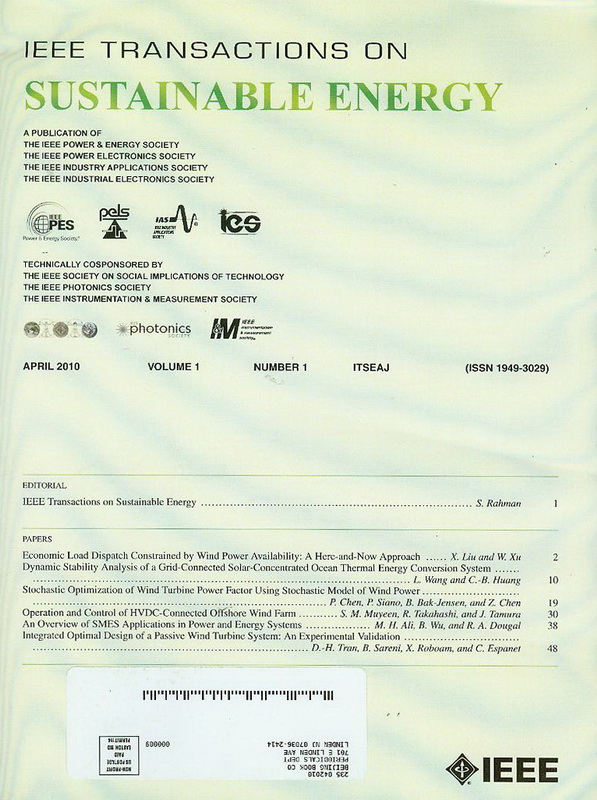An Optimization Framework for Component Sizing and Energy Management in Electric-Hydrogen Hybrid Energy Storage Systems
IF 10
1区 工程技术
Q1 ENERGY & FUELS
引用次数: 0
Abstract
This paper proposes an optimization framework to address the component sizing and energy management problems in an electric-hydrogen hybrid energy storage system connected to a wind turbine. The total cost of the hybrid system is minimized using a particle swarm optimization (PSO) algorithm. In particular, four decision variables are optimized: the electrolyzer (EL) size, the supercapacitor (SC) size, and two parameters in the energy management strategy (EMS). To determine the power split factor for the wind power, the EMS introduces an artificial potential field (APF) and defines a virtual force based on the SC state of charge (SOC). Two APF parameters are optimized to tune the power allocation between the EL and the SC: the shaping parameter of the virtual force and the basis parameter of the power split factor. Since the cutoff frequency of the low pass filter (LPF) in the EMS is adaptively updated based on the optimized APF parameters, the proposed framework is referred to as the “OP-APF” framework. The effectiveness of the OP-APF framework is validated by performing MATLAB and real-time simulations. Compared to three baseline frameworks, OP-APF is more effective in reducing the system total cost, controlling the SC SOC, and alleviating the EL degradation.电-氢混合储能系统组件尺寸和能量管理的优化框架
本文提出了一种优化框架,以解决与风力发电机连接的电-氢混合储能系统中组件尺寸和能量管理问题。采用粒子群优化(PSO)算法使混合系统的总成本最小化。特别是,优化了四个决策变量:电解槽(EL)尺寸,超级电容器(SC)尺寸以及能源管理策略(EMS)中的两个参数。为了确定风电的功率分配因子,EMS引入了人工势场(APF),并根据电网荷电状态(SOC)定义了虚拟力。优化了两个APF参数:虚拟力的成形参数和功率分割因子的基础参数,以调整EL和SC之间的功率分配。由于EMS中的低通滤波器(LPF)的截止频率是根据优化后的APF参数自适应更新的,因此所提出的框架被称为“OP-APF”框架。通过MATLAB仿真和实时仿真验证了OP-APF框架的有效性。与三种基准框架相比,OP-APF在降低系统总成本、控制SC SOC和缓解EL退化方面更有效。
本文章由计算机程序翻译,如有差异,请以英文原文为准。
求助全文
约1分钟内获得全文
求助全文
来源期刊

IEEE Transactions on Sustainable Energy
ENERGY & FUELS-ENGINEERING, ELECTRICAL & ELECTRONIC
CiteScore
21.40
自引率
5.70%
发文量
215
审稿时长
5 months
期刊介绍:
The IEEE Transactions on Sustainable Energy serves as a pivotal platform for sharing groundbreaking research findings on sustainable energy systems, with a focus on their seamless integration into power transmission and/or distribution grids. The journal showcases original research spanning the design, implementation, grid-integration, and control of sustainable energy technologies and systems. Additionally, the Transactions warmly welcomes manuscripts addressing the design, implementation, and evaluation of power systems influenced by sustainable energy systems and devices.
 求助内容:
求助内容: 应助结果提醒方式:
应助结果提醒方式:


